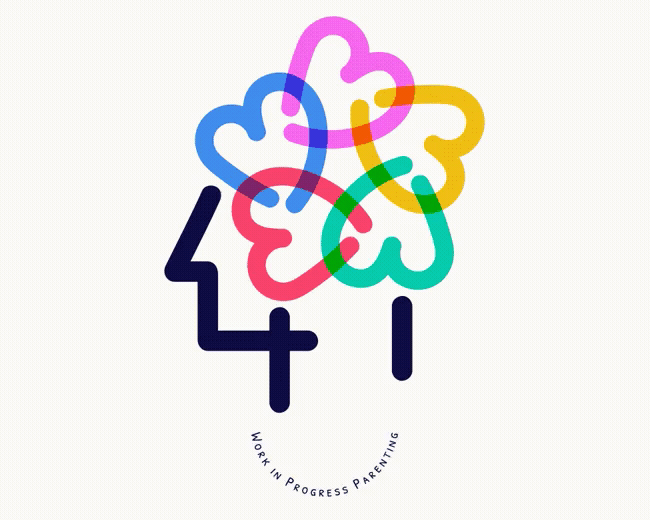“Parenting Doesn’t Come with instructions”…or does it?
You’ve probably heard the tired saying, ‘Parenting doesn’t come with instructions’ (or maybe it was ‘manual’, but you get it.) It’s a phrase that captures the overwhelming, bewildering, blow-your-circuits experience of raising kids. And there’s a degree of reassurance on a deeply human level when we think that everyone is just kinda winging it - we’re not expected to just know, right? How could we?
But, what if parenting actually does come with instructions? Not in a step-by-step guidebook, but in the form of universal truths rooted in proven science and primal laws of human connection that we all are subject to. The moment we’re aware of them, these truths act like an inner compass, guiding us to an in-built parenting support system we didn’t even realise we had. In other words, you already own this book, you just need a chance to read it!
What kind of instructions do we have? Let’s highlight three that can offer immediate support.
(Please get in touch to explore more about these and more!)
Nervous System Awareness
This one cannot be overstated in its instruction-giving significance. Working knowledge of what’s happening in your nervous system throughout your day, and identifying the things that set you off, or bring you back down, is perhaps the most central tool any parent (or person) can use to create a more peaceful life. When we’re in better touch with, and in conscious support of, our nervous system, we realise something very freeing: our ability to keep our nervous system regulated is not about our kids at all, it’s entirely about us. However, the ‘us’ that’s calling the shots if we’re not aware of it is our dysregulated nervous system- often dictating our reactions from a place of imagined threat or depleted shutdown. Not from our cool, regulated, rational self.
When we’re chronically stressed (as most of us are without realising it) our reactions aren’t always what we would like them to be. It’s not our fault then that we get stuck in ruts of reactivity without knowing why or what to do about it. The answer is often to be found right here.
With the right tools, heightened awareness and connection to your nervous system can function like an on demand live stream of internal support, anchoring you in crucial moments, and can help you get different results where it once seemed impossible.
Nervous system science is a major tenet of my work, and its one that has massive ramifications not just for families, but for society in general.
2. Attachment Style
If you’ve ever wondered why you or someone else behaves the way they do in relationship with others - for example, why do some get attached so quickly and intensely, while others struggle to attach at all - look no further than Attachment Science.
Attachment Science offers profound insights into why we behave the way we do in relationships. This was largely shaped by the parent-child dynamic we ourselves experienced, and became the unconscious blueprint for our emotional responses and connections to our own children.
Understanding your default attachment style—secure, anxious, avoidant, or disorganised—through the lens of Attachment Science is a priceless guiding light for parenting. It helps you recognise how your emotional patterns influence your ability to nurture, respond to, and connect with your child as well as helping you to anticipate when those less favourable patterns are most likely to come to the fore. Thus, gaining insight into how your emotional responses and behaviors influence your child’s sense of safety, trust, and emotional regulation. This awareness allows you to respond with sensitivity, build secure attachments, and break generational patterns of disconnection.
Not a bad set of instructions to have, right?
3. Underlying Needs
Usually when we talk about ‘behaviour’, our mind immediately goes to what the child is or isn’t doing. But what about us?
Imperfect human behaviour isn’t just something we have to contend with or figure out how to change, it’s one of the single biggest doorways we have into true connection, understanding and empathy. It is a highly sophisticated dashboard alerting us to an even more important conversation that is being had silently between us and within us.
“All behaviour is our best attempt to get a need met.”
We are all unconsciously driven by universal human needs and our behaviour is an expression of this. Some of these needs we are very familiar with because they are completely obvious and undeniable. But we are not necessarily as familiar with the more intangible fundamental needs that we all share and how they unconsciously influence all of our behaviour.
Learning about these needs is incredibly unifying and engenders compassion - for ourselves, for our children, for every person we encounter. We can begin to see behaviour that previously stupefied us (ours and others’) as a fundamental request begging to be understood.
Do you see me?
Do you hear me?
Do I belong?
As fundamental as it may seem, most of us have not been taught to think clearly and decisively about our feelings and the true needs that underly them. In fact, most of us may not even know what is meant by ‘needs’, or we have been taught that having them is wrong, entitled, unimportant or immature. The irony is, being aware and accepting of these needs and the needs of others is one of the greatest steps we can take towards true maturity and healthy communication. In a very real way, it is the antidote to entitlement because when we bring them to our conscious awareness, we can determine the most appropriate way to get them met, rather than unconsciously demanding others fulfil them for us and being angry when they do not. Knowing our needs means we can progress continuously in mastering ourselves and sincerely connecting with others.
Modelling this awareness for our kids and using the communication skills that stem from it together, is one of the most priceless tools we can implement in our homes. It is the path to peace.





